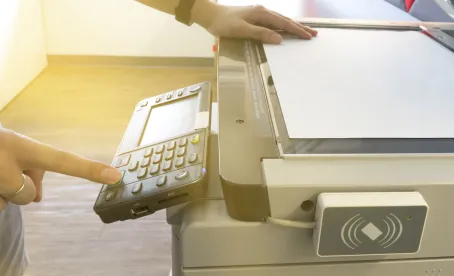That’s right – Bais Yaakov is back, baby! And it’s brought gifts.
You might recall Bais Yaakov – the private high school we’ve previously blogged about on more than a few occasions. Well, last week the First Circuit refused to allow Bais Yaakov to pursue a TCPA class action based on claims that it received three unsolicited fax advertisements from college testing provider ACT, Inc. The Court also rejected Bais Yaakov’s argument that the district court had erred in finding the “Solicited Fax Rule” to be invalid. See Bais Yaakov of Spring Valley v. Act, Inc., 2021 U.S. App. LEXIS 26135 (1st Cir. Aug. 30, 2021).
To recap, Bais Yaakov is a small private high school that – once upon a time in 2005 – filled out a request form indicating that it wanted to administer standardized tests, such as the ACT. In 2012, ACT sent three one-page faxes to the school. And, hoo boy! Little could ACT have known that these three faxes would cause Bais Yaakov to wage a decades-long vendetta against it. Even the First Circuit was awed by the school’s tenacity, beginning its decision last week with this zinger:
Bais Yaakov has since [receiving three one-page faxes in 2012] pursued ACT with a zeal that would impress even Hugo’s Inspector Javert.
But, I digress. Back to the law.
This most recent decision in the Bais Yaakov saga is, suffice it to say, DENSE. Still, there are two important takeaways—or, gifts as a defense lawyer might say—that the Court delivered.
First, in a unanimous ruling, the Court affirmed the district court’s denial of Baas Yaakov’s motion to certify two classes—allegedly consisting of thousands of schools that received unsolicited faxes from ACT. Class A sought to include only recipients of unsolicited fax advertisements from ACT that had no opt-out notice. Class B was broader, including recipients of any (even solicited) fax advertisements from ACT that did not contain an opt-out notice.
The Court rejected both classes because they failed a predominance inquiry. In other words, the Court found that the district court “reasonably determined that individual issues of permission would predominate over common questions for both Class A and Class B.”
Even better, the Court denied certification as to Bais Yaakov’s Class A because it found the proposed class would constitute a “fail-safe class,” that is, a class that would bind members only if they prevailed on an ultimate merits issue to become a member of that class. You see, in order to determine if a fax had been truly “solicited,” a court would have to entertain countless mini-trials. And this can’t happen in a class action.
Whether or not a fail-safe class can survive a predominance inquiry—and thus be certified—is a tricky one that has caused a split among circuit courts. The fact that the First Circuit took a stand here is certainly significant, as the Court itself was aware:
It is safe to assume that our “predominance” holding in this case will not go unnoticed.
The second big takeaway from this case is that the Court ruled that the Solicited Fax Rule is DEAD. The Court agreed with the D.C. Circuit’s decision in 2017, finding that the FCC had no authority under the TCPA to regulate faxes that were sent with the recipient’s consent. And, although the Court was not bound by the D.C. Circuit Court’s decision, it nonetheless found that it made “good sense.”
You might remember that we in TCPAWorld previously celebrated Solicited Fax Freedom Day:
All of which leads us to today– Solicited Fax Freedom Day in TCPAWorld. (It’s sort of like Bastille Day, but with fewer beheadings.) For today is the day that the FCC’s post Bais Yaakov ruling finally takes effect and the Solicited Fax Rule is officially withdrawn ending 13 years of (figurative) bloodshed in federal courthouses over the content of solicited faxes.
So, there you have it. The First Circuit delivers us two “gifts” with this most recent Bais Yaakov decision.
Sara J. Triplett contributed to this article.



 />i
/>i
